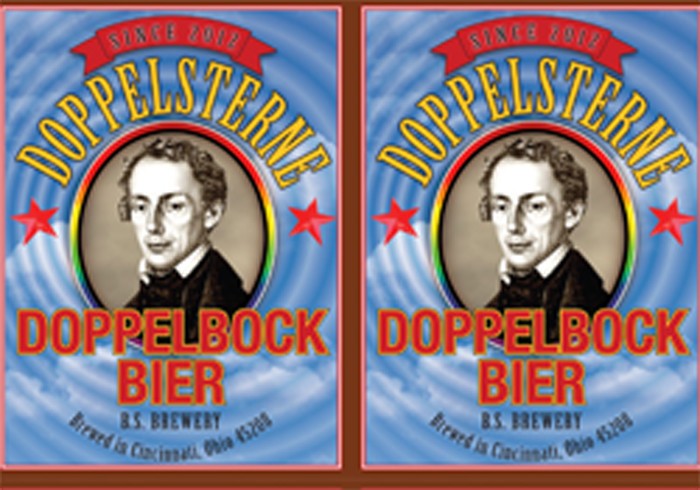
'Bubbles' for Work and Play: Holland's Lab Participates in 2012 Bockfest
"Its all about the bubbles, jokes Christy Holland, PhD, a professor in the division of cardiovascular diseases, when discussing not only her research but also one of her pastimes: beer brewing.
Hollands lab studies the use of ultrasound for stroke therapy, mainly to break up blood clots or to deliver therapeuticslike tPAdirectly to the clot. They also study the bioeffects of diagnostic and therapeutic ultrasound and acoustic cavitation, or bubble activity.
"By exposing liposomes filled with drugs and bubbles to a sound wave in a targeted area of the body, the drug is released exactly where it is needed, and the bubble activity accelerates uptake of the therapeutic, she explains. "Using ultrasound and molecularly targeted agents, we may be able to deliver targeted therapies in a more efficient and less invasive way.
Recently, Holland, Ken Bader, PhD, postdoctoral fellow, and Jonathan (Jay) Sutton, PhD grad studentwho Holland calls the "brew masters and namesake of B.S. Brewerydecided to use bubbles for a little fun outside of the lab: to brew beer.
Their first batch, a Dopplebock, was entered in last weekends Bockfest event in Cincinnatis Over the Rhine (OTR) neighborhood; unfortunately, the group didnt win, but they gave us a little insight into the secret behind their "Doppelsterne Doppelbock Bier.
How did this project begin?
Sutton: "Ken and I designed the beer recipe that was entered in the Bockfest contest. We have both been brewing for a few years nowsince undergradand mostly just do it for fun. It's a relaxing way to spend a Saturday afternoon and clear the mind. We don't have a clubclubs take time, and home brewing is enough for me right now in grad schoolbut we got together for our annual Christmas party in December and worked as an entire lab to make it.
"As for the competition, Ken and I are a bit worried about it being competition-ready. Neither of us has brewed a bock before, and from our reading, they can be a bit tricky. I suppose that means we understand the science behind the process relatively well, since we can pick out what's difficult and what's easy to replicate within a certain beer recipe. I think that a brewer can become as engrossed as they would like in brewing science. In general, brewing does indeed involve science, but for the most part a good beer can be brewed at home with good ingredients, good equipment sterilization, time and a good palate. Beyond that, I recommend starting your own microbrewery. For Ken and me right now, we try to maintain a superficial understanding, for sanity's sake. We try to model our philosophy after one of the godfathers of home brewing Charlie Papazian, who always reminds people to Relax, don't worry, and have a home brew.
Holland: "We also all love the OTR neighborhood and wanted to do something in celebration of the rekindling of the brewing tradition in Cincinnati. Ken, Jay and I are long-time home brewers. There's an obvious link to the science of bubbles.
How many of you are involved in the project?
Sutton: "The whole lab, so eight in total.
So explain a little bit about the bock you entered.
Holland: "We brewed a recipe for a Doppelbock that Jay developed. We named it Doppelsterne after Doppler's original paper, On the colored light of double stars... (Doppler is in reference to Austrian physicist Christian Doppler.) Kind of a geeky ultrasound jokeDoppler ultrasound. Doppelsterne means double stars and is tongue-in-cheek for two stars in the labJay and Ken. My friend and neighbor, Barb Siegel, designed the label; she's a professional graphic designer.
How many batches did it take to get to this particular beer?
Sutton: "Uhhh, zero practice batches, and I guess we're hoping the beautiful label will make up for any taste deficiencies.
Bader: "We're experimentalists, so this is version 1.0. There will be a few errors, but that's why version 2.0 will be better and much more expensive. Also, in my heart and in my belly, every beer is a winner.
Said like a true beer lover. Good luck next year!

Christy Holland, PhD (left), with Kirthi Radhakrishnan, a member of Holland's lab who also participated in the beer brewing competition.
Tags
Related Stories
Memphis, Tennessee news: UC researchers pioneering research to...
May 9, 2024
Memphis, Tennessee television station Action News 5 featured research from the University of Cincinnati's Laura Ngwenya and Jed Hartings that is testing the first treatments for spreading depolarizations, abnormal brain activity also called a "brain tsunami."
South Bend, Indiana news: Stopping migraines before they start
May 8, 2024
The University of Cincinnati's Vince Martin spoke with South Bend television station WNDU on a recent study that found people who suffer from migraines might be able to predict when one is coming hours before symptoms even start.
WVXU: A look at alcohol, de-alcoholized wine and everything in...
May 7, 2024
The University of Cincinnati's Michael Schoech joined Cincinnati Edition for a panel discussion about current rates of alcohol consumption and the growing number of non-alcoholic alternatives.
